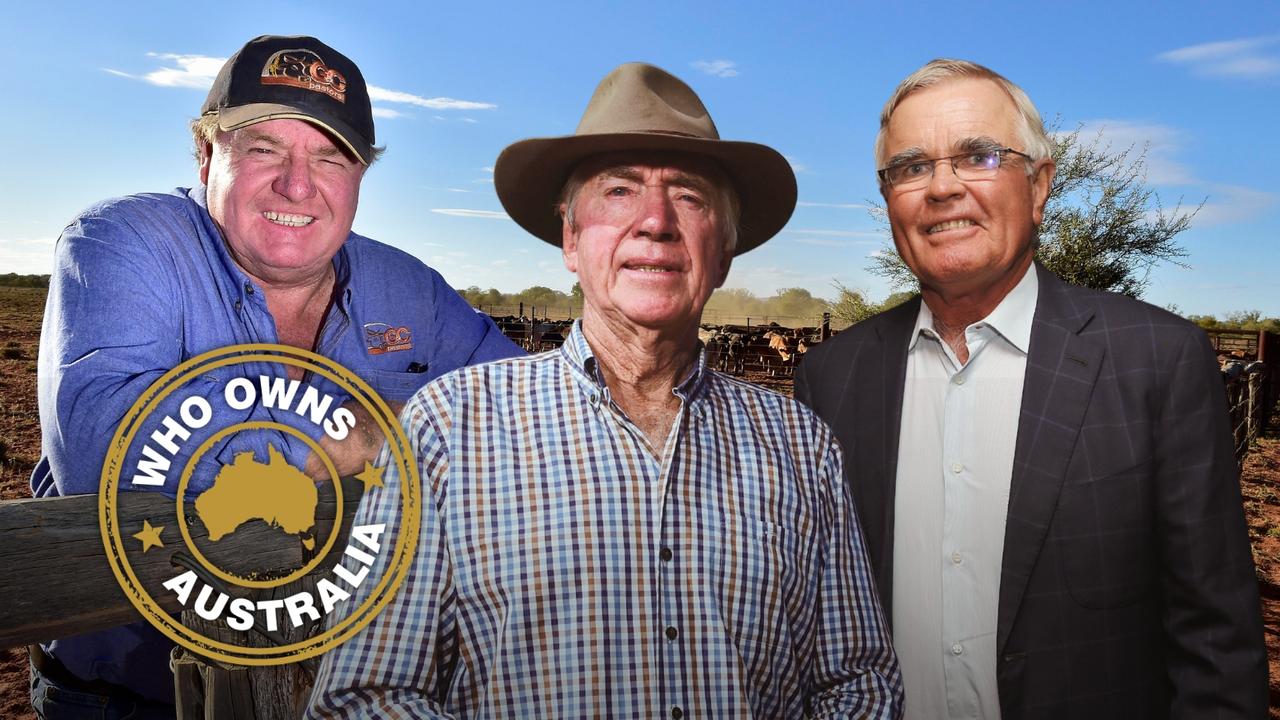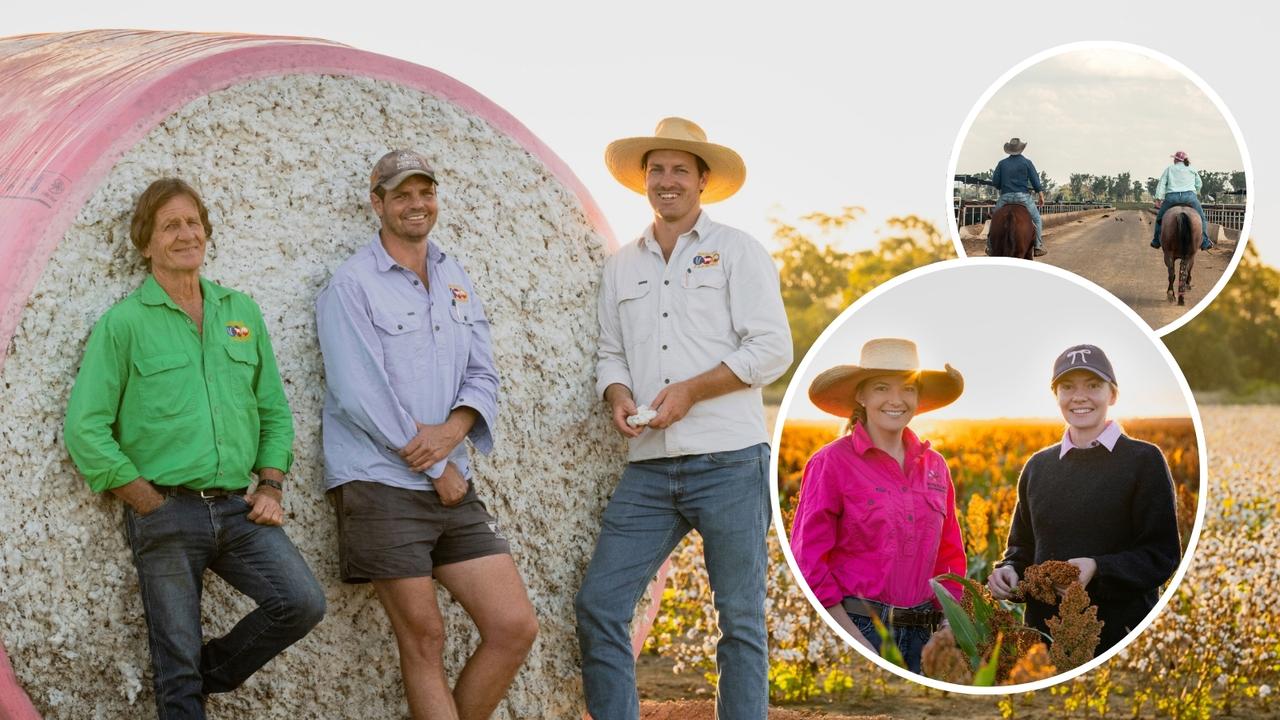Iris and Wool, Saltbush Stretch, Rove Numby: Rural business women master the collab
Female founders have mastered business collaborations to make country-chic the hottest product in town.
Working from her home on The Bulls Run Station – a sprawling 6880-hectare Paraway Pastoral property in the NSW Riverina – rural entrepreneur Sally McManus considers her small business headquarters to be “in the suburbs”.
Carpeted with waving grains and fat prime lambs, the farm is halfway between Wagga Wagga and Narrandera, about a 40-minute drive to the nearest town with a post office.
Definitely not the ’burbs.
For McManus, however, it’s central compared to her previous posting on an Outback Queensland cattle station near Roma, where she and husband James worked before moving south to the banks of the Murrumbidgee River for him to manage this sheep and cropping enterprise.

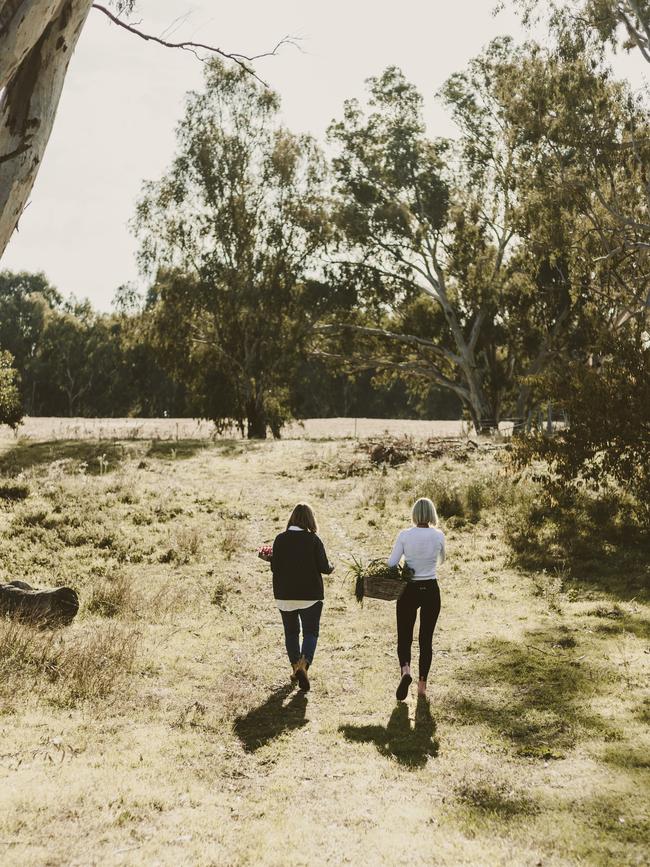
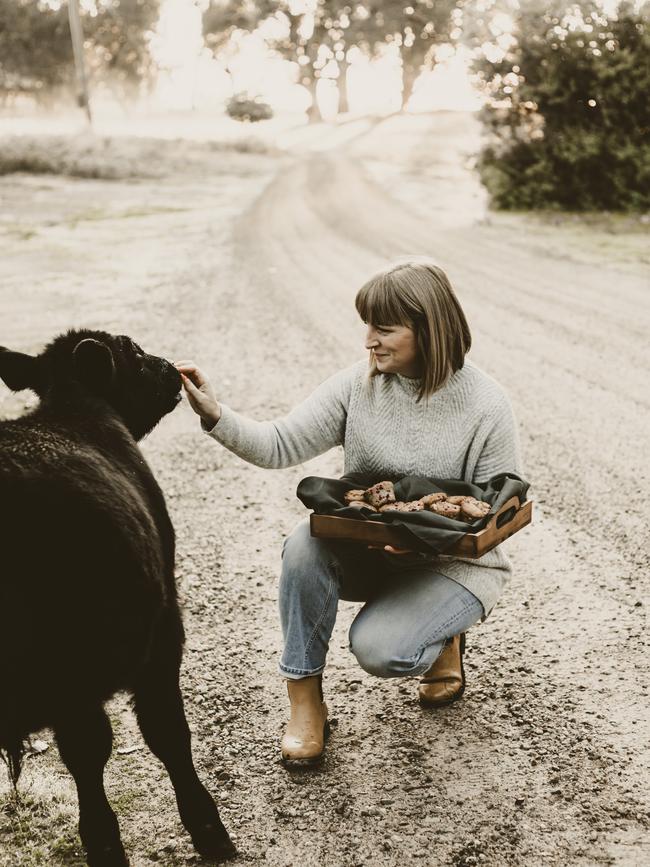
Surrounded by a region known for its fresh produce and wines, McManus sees it as a great place to establish her burgeoning food delivery service, The Homestead Pantry Box.
The business, she explains, is “aimed at the rural cook”. (Think Hello Fresh for the bush.)
“I’m trying to bring Australian-made to rural communities, and make it the everyday gourmet,” she says. “For people who aren’t living in big cities, it’s a chance to try different things.
“And when you live out where we live, the choices can be pretty limited.”
Limited choice is something McManus says rural communities have put up with for far too long.
She’s part of an army of savvy female founders who are changing that status quo, building successful rural companies that deliver premium quality, sought-after goods and services to both locals and city buyers.
McManus and her peers are not just focused on their own commercial successes, however. They’re working together to reinvent the way people in the bush do business, while transforming how urban Australians view “rural”.
They’re making country chic. Then leveraging that brand image to pump new life into their communities, building a national following in the process.
Collaboration has been their most powerful tool.
FEMALE FOUNDERS DOMINATE
Buy from the Bush founder Grace Brennan has been working to raise the profile of rural small businesses, including McManus’s, for the past four years.
Born as a response to the drought crisis in 2019, Buy from the Bush’s online marketplace connects more than 250 rural companies with customers globally, and has generated $9 million-plus in revenue for country traders.
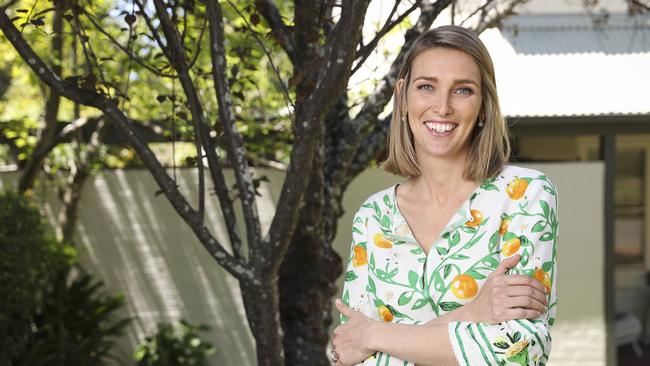
A city-to-country convert who married a farmer and moved from Sydney to a sheep and cropping property near Warren on NSW’s Western Plains, Brennan says collaboration has been critical for the rural founders she has supported.
“I see collaboration and relying on community and neighbours as a unique characteristic of rural communities and people who live in the bush,” she says. “I think it is only natural that would carry into doing business.”
Brennan says business collaboration may not be unique to females, but 97 per cent of the companies that have joined the Buy from the Bush movement are founded by women.
“The concept (of Buy from the Bush) was to support talented small businesses in the bush. It just so happens so many of them are run by women,” she says. “If had thought about it harder, I would have known that would be the data.
“It is so common that women on farms, or who have moved here, seek opportunities off farm; and in times of crisis like drought, those off-farm income sources become critically important.”
Examples of rural female collaboration abound: McManus and Saltbush Stretch founder Em Armstrong; Lady Kate knitwear founder Penny Ashby and Grampians Goods Co. director Amanda Cochran; Coonamble boutique Mink and Me and food blogger and writer Sophie Hansen. Rural Women’s Day creator Jackie Elliott, OAK Magazine director Kimberley Furness and Iris and Wool founder Emily Riggs have all built their businesses on collaboration.
SHARING FOLLOWERS
Former caterer McManus started her food delivery venture in December 2021, and demand quickly ramped up. Subscribers to The Homestead Pantry Box receive bimonthly parcels of Aussie-made artisan produce, plus recipes and tips about how to use the ingredients.
“What really excites me is when someone messages me and tells me they have been in a cooking rut … and I’m able to give them the simplicity of something easy to use and a simple recipe to do with it. That really gets me going,” she says.
“Some of the products that I find; they might only sell locally within the districts, and they don’t often get out there further. So I’m also getting the product out there for the person who’s making it as well.”
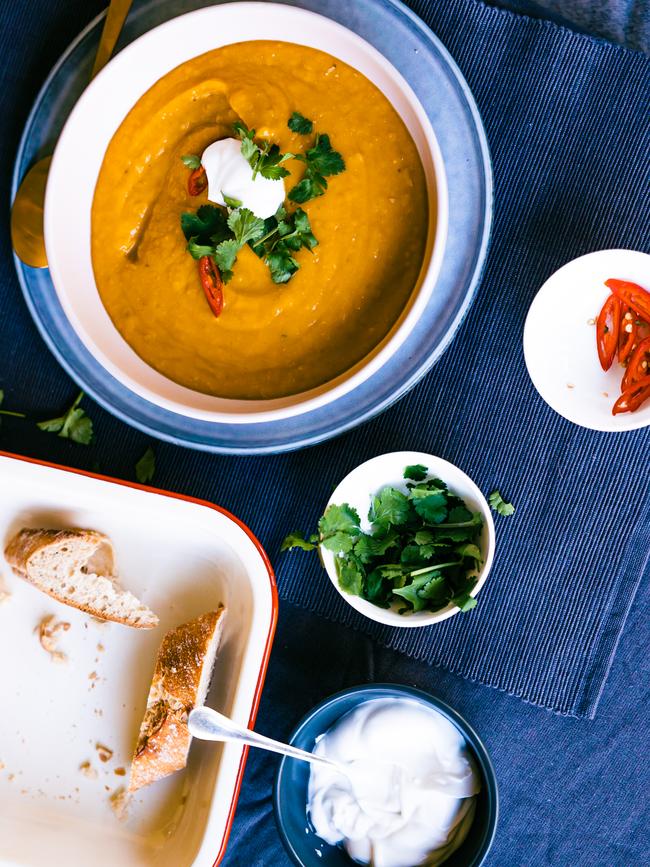
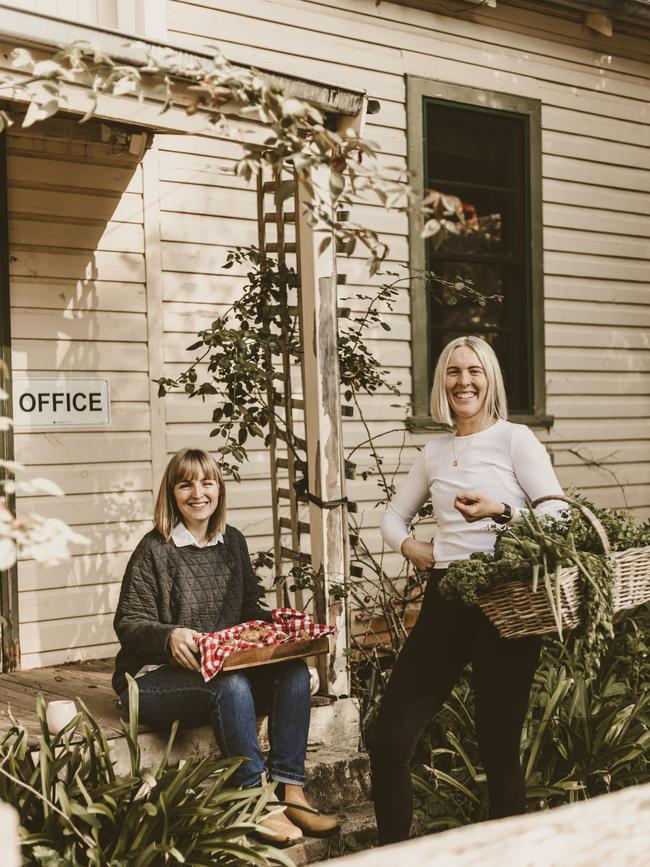
The busy mum of three could have been content with her own steady growth, but a chance soon came up to collaborate with Carrathool fitness entrepreneur Em Armstrong.
Originally from a sheep property between Hay and Griffith, Armstrong’s Saltbush Stretch online yoga and pilates studio is aimed squarely at a rural audience, but anyone can join.
The pair teamed up to launch Move and Nourish – a four-week campaign that challenged Saltbush Stretch’s 300-plus subscribers to cook six new meals in a month using Homestead Pantry Box ingredients and recipes.
“We are very like-minded with our businesses and we live in very similar environments, and it just seemed the right thing to do,” McManus says. “Living in a rural setting, we both understand our pressures and our needs. I think that is a good reason why it has worked really well.”
Armstrong’s health hub is as much about building a community as it is about keeping active, and incorporating nutrition was a natural progression, she says.
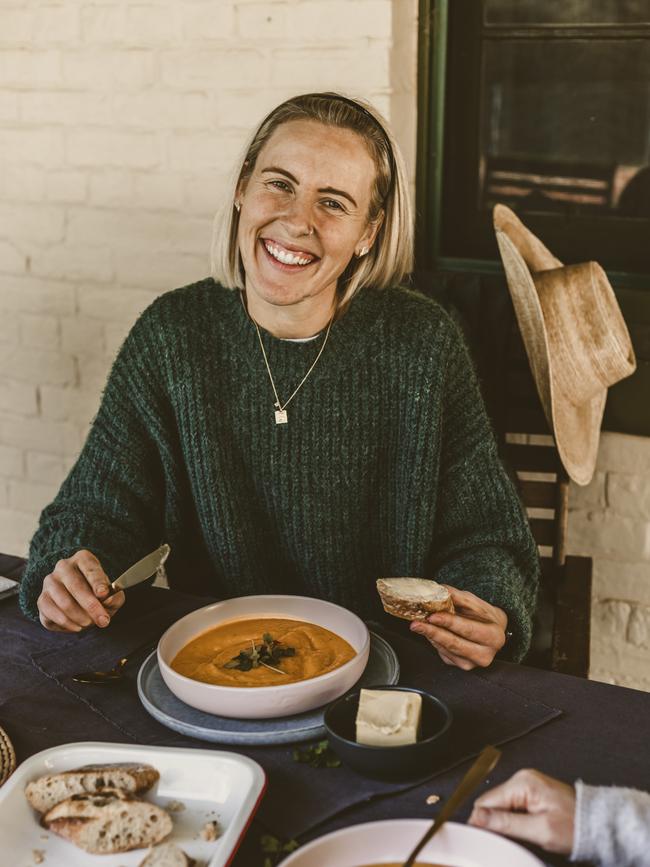

“In isolated towns there is less quality of produce,” she says. “I wanted (McManus) to bring her expertise to show we might not have everything they do in Double Bay, but we can still make something really delicious and nutritious for a couple or a family or someone driving a tractor.
“Everyone has said they’ve found a new profound love of cooking.”
McManus created bespoke recipes for the audience, and the pair used Instagram’s collaboration tool for cross promotion. The result was 30 followers from The Homestead Pantry Box jumped on board with Saltbush Stretch, and a number of Armstrong’s fitness fans joined the wait list to subscribe to McManus’s food box deliveries. “For me it has brought two communities together,” McManus says.
BURRA BOUTIQUE TO DAVID JONES
For Merino wool fashion brand founder Emily Riggs, teaming up with other rural businesswomen has been vital to expanding her customer base.
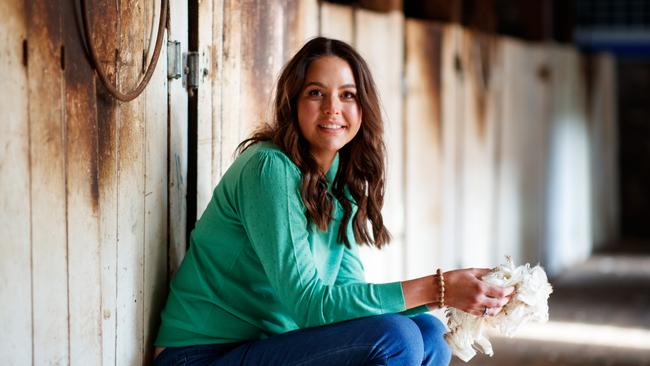
Riggs runs her label, Iris and Wool, from her family’s 40,000-hectare sheep property at Burra, in South Australia’s Mid North. The company showcases sustainable Australian fibre in a range of beautifully designed garments, while also raising awareness and support for families fighting cancers.
“Collaborations have been a huge part of the growth of the brand,” says the mother of two. “Probably the biggest one I did last year; Catriona Rowntree and I designed a capsule collection together and that was probably a very pivotal moment for the business.
“She was a perfect ambassador for Iris and Wool. Very engaging, and married to a wool farmer.”
Recognition as the overall winner of the 2022 Shine Awards, which celebrates Australia’s rural women, propelled Riggs into a national spotlight last year. The media attention bolstered sales, and continuing to work with other female founders has kept momentum going, she says.
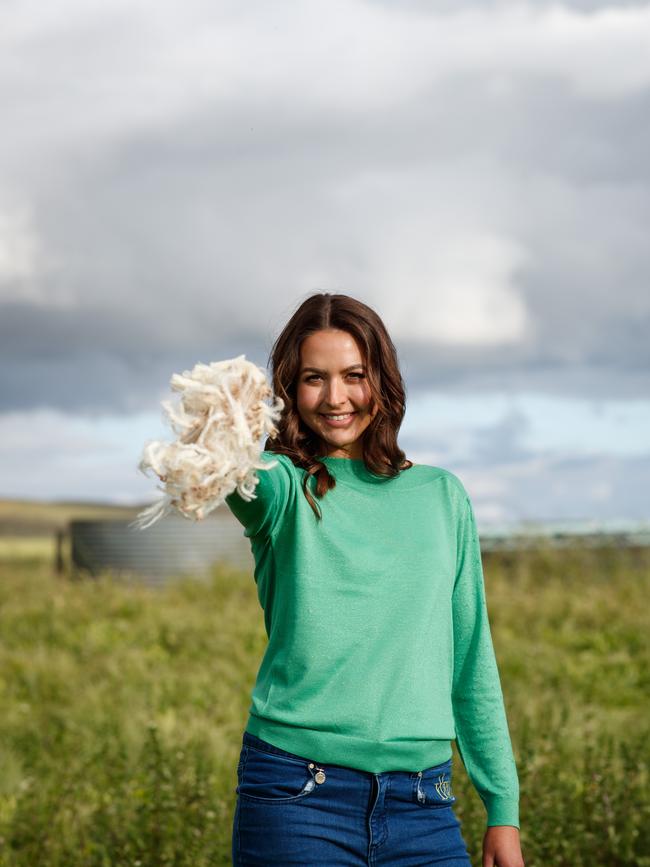
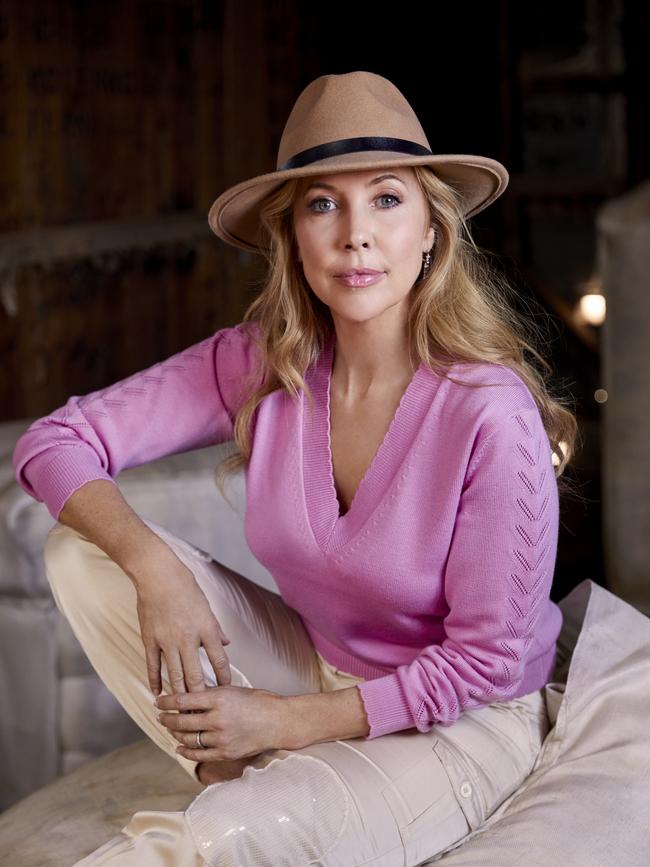
Riggs worked with four female-led brands in March, including Emma Hawkins’ Homegrown Kids, to open a concept store in Geelong for two weeks to test customer appetite for a bricks-and-mortar experience. She followed the successful trial by opening her own boutique in Burra about three months ago. The shop complements her online store, while adding a fashionable destination to the pastoral tourist town.
“They’ve (Burra locals) all been very supportive and cheering me on,” she says. “I think they’ve quite enjoyed watching the brand grow.”
Grow she has. Iris and Wool’s spring collection is launching in David Jones on September 4, and will be available nationally through the retailer’s website, and stocked in its flagship Melbourne, Adelaide and Sydney stores.
TOPPLING BARRIERS ONE BY ONE
Though Brennan doesn’t like to focus on the downsides to doing business in the bush – “we want people to talk about us in terms of potential, not pity” – if pressed, she rattles off a list of hurdles that make collaboration a necessity.
Lack of childcare. No public transport. Limited options for shipping. Expensive postage.
“To only get your mail three times a week, and not when it rains, and be charged a lot more is a big barrier,” Brennan says, laughing.
Social media campaigns and beautifully designed websites (often featuring stunning images by rural photographers) have been integral to the success of many rural businesswomen.
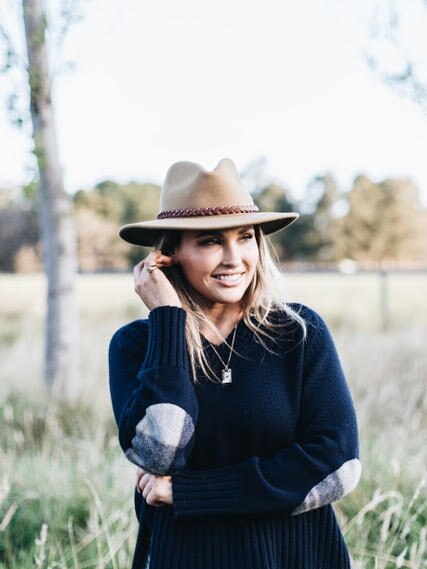
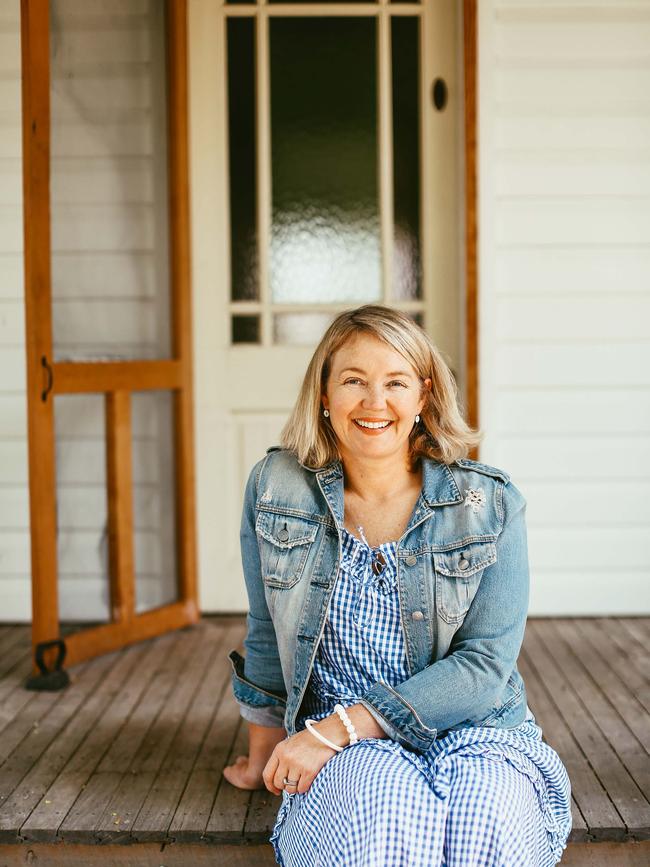
Without digital connectivity, many of the collaborations simply wouldn’t have been possible. And there’s still a long way to go to achieve internet and mobile coverage that comes close to what is available in cities.
“I think we are grateful for what we’ve got; it is possible to do business from the middle of nowhere now,” Brennan says, qualifying that with an example of the inequality that remains.
During a roundtable meeting on Zoom with social media giant Meta and federal Digital Economy Minister Jane Hume last year, when it came time for Brennan to speak about what digital skills and tools rural traders needed, the internet cut out right on cue. Twice.
So she and the minister tried to catch up by phone, with Brennan standing on her children’s trampoline to find the only patch of mobile reception available on bad-weather days.
“(The minister) made a joke that she’d go talk to the minister for infrastructure,” Brennan says, “but I had tears in my eyes, because I wanted to get this message across to decision makers.
“In those critical moments when it’s not possible to participate, it is so painful. Fingers crossed this won’t be something we’re talking about in the future.”
For McManus, the biggest challenge has been getting her business off the ground while raising her young family, with the long drives and lack of childcare that is part of rural life.
“I think starting a business, you put everything in. But now that we’re getting into a good place with it, it is making sure I have the family and work-life balance right,” she says.
“It can be a bit tricky. A bit like living out here.”
POWER OF TWO: ROVE NUMBY
Collaboration has been a perfect solution for Lou Crawford and Heidi Castleden, who have brought their strengths to new agritourism venture Rove Numby on the Crawford family’s 6000-hectare sheep and cattle station at Reids Flat in Central West NSW.
In a bid to add a new revenue stream to Numby Station that would fit with raising young children, Crawford decided to restore the property’s historic stone house, Rosewood Cottage.
With the help of local farmer and builder Geoff Southwell, she has turned it into a beautifully appointed base camp for guided walking tours of the wild countryside, complete with home-cooked meals by candlelight, hot showers and full beds in bell tents.

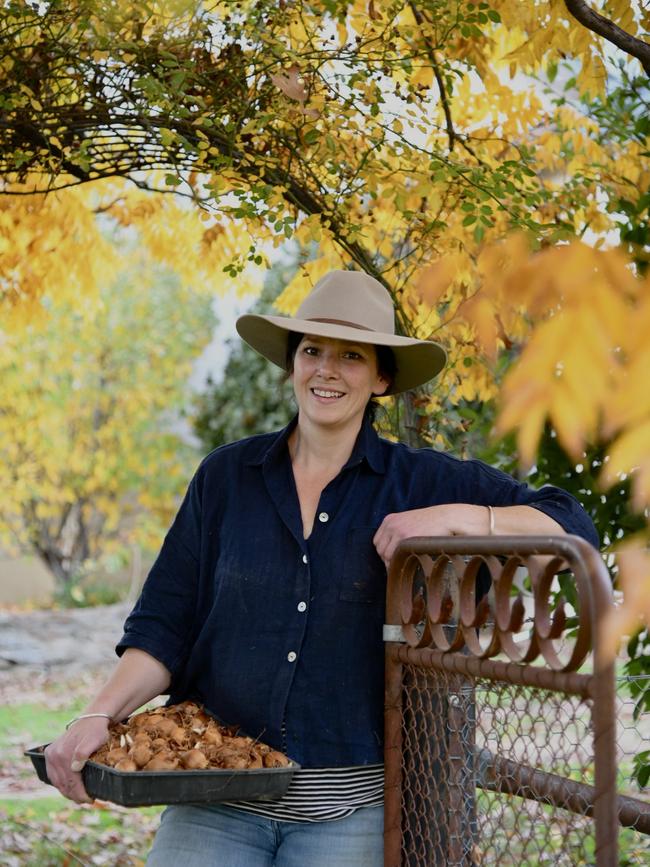
Castleden, who lives on a farm in neighbouring Hovells Creek valley, was looking for a new chapter after winding up her successful rural fashion brand, Castleden Co, which had become unsustainable as a one-woman operation.
“My studio was in town, and I was doing a 120km round-trip a day so that I could have childcare and work,” Castleden says. “Everything from design to production to accounts to socials to everything was just me.
“Physically, mentally, creatively and with my family, everything was just at burnout point.”
Castleden made the difficult decision at the end of last year to close her studio doors and instead started small-scale produce and cut-flower growing with a dash of catering on the side. The move freed up more time to help Crawford with the final stages of the cottage and dream up how she could add delicious local food to the experience.
“Hearing Lou’s genuine passion for this project, knowing her get-it-done approach and ability to pretty much learn any skill involved in the restoration, I was more than keen; it was a privilege to get on board,” Castleden says.
Crawford says the partnership started after a conversation at their kids’ swimming lessons.
“I always knew what I was doing would be a two-person job,” she says. “Heidi has always been a great friend and really supportive from day one and I think she just saw my vision.
“As our working relationship evolved, all these extra skills kept bubbling to the surface that I didn’t even know Heidi had … so more and more it became kind of a match made in heaven.”
The pair are at the beginning of their collaborative journey, with Rove Numby opening for its first season of tours this spring.
“I want people to see that yes, we live in pretty scenery, but it’s a working farm and I want to tell that story and it’s an important story to tell well,” Crawford says.



